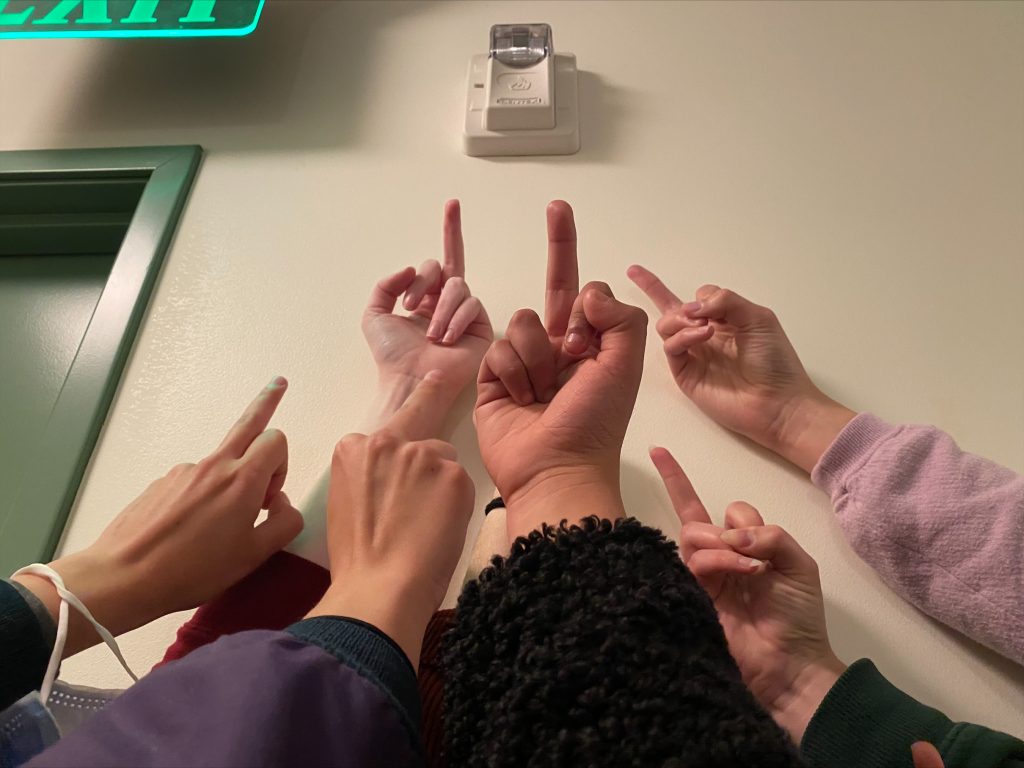Sam Bloomfield ’22
Guest Writer
Scripps is training us in apathy and distrust of emergency protocol, and if (God forbid) there’s ever an actual fire in one of the dorms, at least 10 of us aren’t getting out in time.
If any of you have ever had the pleasure of living in Frankel, Routt, or Senior Routt, you’ll know the semi-regular, rhythmic, atonal screech of the fire alarm. Mid-afternoon, mid-essay, midnight, interrupting your last-minute cram sesh, your nap, or your shower.
The first couple times, it’s concerning! You grab your things and evacuate to Jacqua and patiently await the headcount. But, eventually, it gets old. You grab your laptop and walk to Seal Court or a friend’s dorm to avoid getting fined for not evacuating. You take that extra minute to find the right pair of shoes, finish typing that quote, or to condition your hair.
I’ve spoken to two students, each playing a role in setting off one of the fire alarms. “It wasn’t even smoky! It was just – it was like, a hot pan. The air was 100 percent clear. The air could not have been clearer,” one student claimed.
“The air was as clear as a summer day,” her roommate interjected.
“If I had turned on my phone, the air quality would have been clearer than it would’ve been outside!” Another student, responsible for a separate occurrence of the fire alarm being set off, shared a similar sense of incredulity.
“I was cooking an egg and all of a sudden the fire alarm went off for three buildings,” she reported. “My singular egg, which I didn’t even overcook, disrupted the afternoon of dozens of students. The Senior Routt Apartments weren’t intended to be kitchens. They just added a little stove to a room. I think the fire
alarm is simply too close.”
This is a serious problem, and I’m not the first to notice it. Back in her days as a freshman staff writer, Head Design Editor for The Scripps Voice Annika Ragnartz ’22 expressed the same concerns in her article “Fire the Fire Alarms.” Her article acutely identifies this issue, amplifying the voices of frustrated students who have been vocal about the problem since my freshman year. Now, back from our pandemic-instigated hiatus from campus, the problem still remains in 2022.
I intend to continue the discussion in hopes of prompting change now, when our fire alarm-related fears are merely dark hypotheticals. It pains me to think that it will take a real emergency, a real failure of Scripps infrastructure, or a serious injury to a member of our community for this problem to be seriously addressed.
P.S. You might be wondering: what happens to the food that sets off the false alarms? This section of the article, featuring a previously unreleased student conversation, is for you.
“Mention the pot stickers. Mention how they were gooey in the water ’cause I had to leave them and I didn’t like that.”
“Did you eat them?”
“I did eat them.”
“Did you like it though?” her roommate prompted.
“It could have been less gooey. It would have been less gooey if the fire alarm hadn’t gone off.”
“Why didn’t you just microwave it again?” inquired Annika Ragnartz, original fire alarm critic and champion of truth.
“To make the food hot again is triggering,” replied the egg maker.
“IT IS — you’re so right about that,” agrees the pot sticker maker.
What about the egg?
The student reported that she did not eat the egg, because it got cold during the evacuation. Plus, the embarrassment of setting off a fire alarm that disrupts dozens of busy peers is pretty unappetizing.
Her roommate, free from this shame, ate the egg and gave us a statement on the experience.
“It was simply an egg.” She reports.
Image Source: Sam Bloomfield ’22





